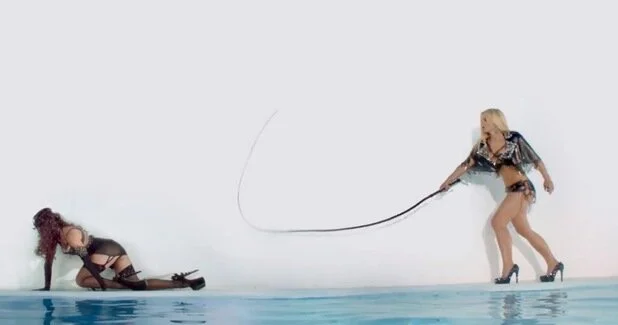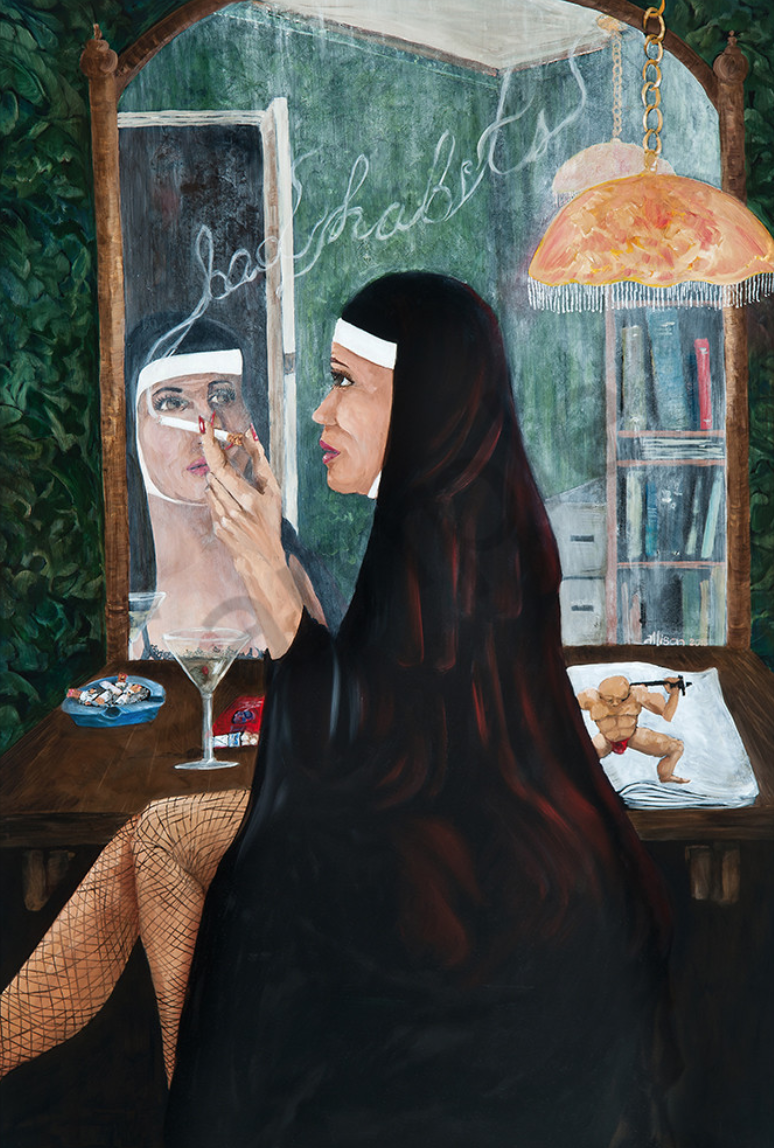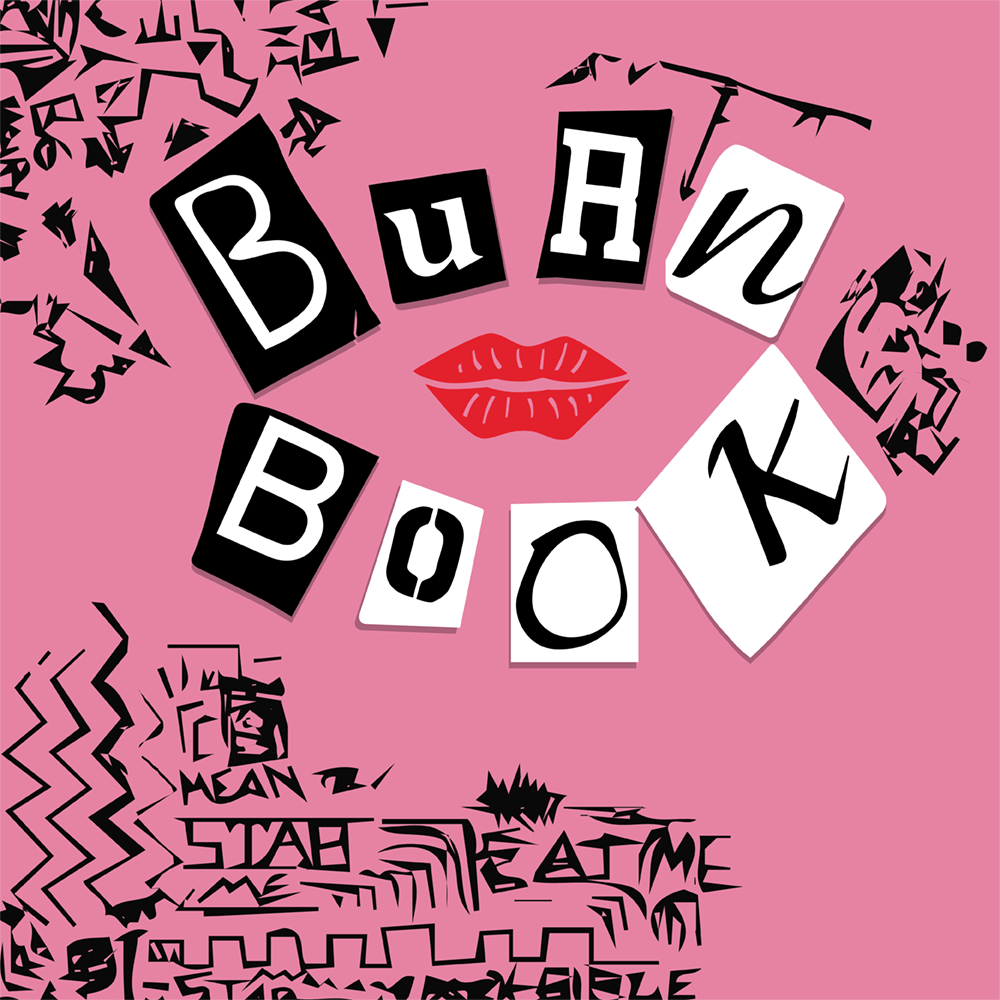You Better Work Bitch
In the early days of quarantine, I was given a lot of praise about my self-discipline. The world turned upside down, but I kept my routine virtually unchanged.
That was a subtle pun if you caught it.
Actually, my day-to-say schedule got better in lockdown. I started working out earlier, meditating in the morning, writing before work. Every day I checked the boxes for personal development.
I’m not saying that to brag.
Discipline is a double edged sword for me. To stay busy means I don’t have to think. To show progress means I’m doing okay. It’s the facade of the super women, the mommy-blogger of quarantine. And who can argue? None of my output is negative. I’m hiding neurosis behind resumes and mentorship programs. I’ve become the master of hiding in plain sight, and everything I have to show for it is positive.
The masses may have coped with booze and brownies, but I medicated with structure. That said, there's a fine line between self-discipline and self-destruction, and the tipping point is found in burning out.
Now I'm running out of steam right when everyone else is getting into the swing of things. I thought if I could sprint through a few months of lockdown, I’d come out the other side more prepared. I could process after the fact, after I’d already gotten ahead. My mindset was immediately competitive. I will come out of this pandemic with a book, a career plan, and shredded abs. And some of that is true, but I’ll also be stressed, anxious, and having missed the opportunity to self reflect.
It feels like the whole world went on pause except for me. I’ve been running software in the background and wondering why my system is slowly shutting down. But who has time for a full reboot?
Our general understanding is that self-discipline is the ability to resist things you want. We see it as having the will power to not indulge, or to overcome the emotional responses around temptation.
Discipline in this sense is a constant flex of control. We believe that regimented people are better at saying no, and that more control equates better habits. No I won’t sleep in, no I won’t eat that, no I won’t watch another episode. In this thinking we start to hate ourselves for caving to our wants, and we slowly learn to feel awful about anything that makes us feel good. We are teaching ourselves self-discipline through shame. Discipline then becomes a daily exercise of will power.
You want a hot body? You want a Bugatti? You want a Maserati? You better work bitch.
At their core, though, will power and control are simply tools we use to adjust our behaviours. They are muscles you train, and they have limitations in their use.You can (and likely will) exhaust will power to failure.
Self-discipline is something much more curated than self-control. It's a mindset and environmental changes that power good habits. People who are truly disciplined create structures to keep themselves on track. It's not enough, for example, to set your alarm for 6am and will yourself out of bed. To be disciplined, it would make more sense to move the alarm to the opposite end of your room. In the morning, you have no choice but to get up, eliminating any ability to ignore the alarm or to hate yourself for ignoring it.
This summer we bought a scale with the best intentions. Regular weigh-ins keep you honest with your progress. I, however, immediately became obsessed with the new form of structure and competition. Every day I stood on the scale and either berated or praised myself for the numbers I saw. I would carry that feeling for the rest of the day, deciding to control more and more of my food intake to win tomorrow’s game.
Don't worry, I don’t allow myself to use the scale anymore. This was an environmental change in an attempt to drive discipline, but what it did was foster obsession. I didn't have the control to ignore the competition of the scale, and it bothered me how much I needed to check my progress. Moreover, all the scale did was emphasize that I should have better will power around my weight. If I didn't see the a number I liked, it was my fault for not working hard enough.
What does that mindset create but self-loathing?
Control isn’t always a good thing. Fundamentally we know this on a large scale. We opt for democracy over dictatorship in the pursuit of freedom. It can be easy, however, to forget the importance of wiggle-room in our day-to-day. Having structure is helpful, but there are small ways where losing control can be beneficial. For example, I choose to log my workouts instead of my weight. The numbers aren't as precise, but then again, neither is my need to control the outcome.
Similarly addiction programs cite powerlessness as a main principle in recovery. The thought is that too much self-reliance is harmful. I’ve also always said that there is a freedom in having religion. I personally don’t have any faith, but being able to recognize powerlessness in the face of a higher being sounds pretty relaxing. That said, it’s also hard to imagine relinquishing that level of control to something unknown.
A true icon of indulgence
Cookie is for Me?
People give in to temptation all the time. I am presently eating a pink Starburst for breakfast, and I don't plan on stopping at one...When we do cave, there are two major ways of reconciling that lack of will power in ourselves. One is to overindulge, the other is to numb.
It’s easy to conflate a breach in self-control with self-hatred. I couldn’t resist the cookie, so I am evil. The question is, how do you handle being evil? Do you lean into it and accept yourself as this new persona? Well, if this makes me bad, I guess I’m a cookie monster. One biscuit from the jar and suddenly I am a beacon of no restraint.
C is for cookie, and cookie is for me.
Or, on the flip side, do you double down and find ways to inflict control on yourself? Maybe you try numbing the shame with other substances and self punishment.
Mark once told me a great theory about relationships, but I think it’s even more applicable to an understanding of self. If you drop a mirror, there will inevitably be a few cracks. The first time it's salvageable, but eventually what’s staring back at you isn’t the same person you started with. How many times can your will power crack before you start believing you’re fundamentally flawed?
Self-discipline shouldn’t feel like that. It may be challenging to have that 6am wake up, but ultimately the benefits are worth it. When we are disciplined, we structure our world to maintain habits that we see as positive.
The cookie, unfortunately, almost always feels positive in the moment. A simple way to keep the temptations at bay becomes finding more "socially acceptable" habits to lean on instead. Take, for instance, the newly divorced woman who dives into crossfit. Fitness is a much better outlet for feelings than ice-cream, but it's not always healthy either.
Someone please buy this
Can’t Escape All of These Bad Habits
This year everyone’s habits have changed by necessity. At the beginning, it felt temporary. These habits were too. In lockdown you can drink, eat a million loaves of sourdough, and binge trashy television because you’re home. I thought I could power through with insane levels of productivity because of all my extra time. The funny part is that we both told each other the same thing: the second we go back to real life I’ll stop
But this is real life now.
We decided to nurture parts of ourselves in quarantine on the condition that we would be going back to normal. We allowed regular discipline to fall out the window in lieu of feeling okay, but now we have to get back to our lives without the finality of a vaccine or white flag. The virus isn’t over, we just can’t live like this anymore
The hobbies of the early days have dwindled, and what we’re left with are new behavioural quirks we developed to cope. Some are good, like cooking, cleaning, and taking walks.
Others are less so.
Self-discipline in quarantine is a whole new challenge. Not because we have more temptations, but because our usual habits, like waking up early, packing a lunch, reviewing calendars etc… are actually compulsions. We do them because we are required to. The driving force is not to look like an idiot, or just basic survival.
Similarly, one article brilliantly cites the will power it took to get through that first cup of coffee, beer, or cigarette. We powered through those awful first flavours because it was the socially cool thing to do. Just because we’ve trained ourselves to be disciplined, it doesn’t mean that we've chosen the right areas to focus on.
With this in mind self-discipline is shown in what you do on days off or independent of peer influence. Do you set up a new routine for yourself when you're alone? Or do you laze about until it’s time to go back to the office. Without the driving compulsions keeping you on track, how do you manage?
Personally my vices come in bursts. I fend them off until I have an unbelievable need to watch 9 episodes of Too Hot to Handle in one sitting. I've gone from 10 hours of work a day in March to fully committing to the Bachelorette in November. Now it feels like I’ve regressed back to the beginning of quarantine, passing by everyone who has bought new gym equipment, changed jobs, and are redecorating their homes for the winter. It's the pendulum of coping, and I'm on the wrong side.
I’m Burning Up, Burning (Out) For You Baby
Statistically, I know I can’t be the only one facing burnout. The Zoom fatigue is mind numbing, the case numbers are going up, and we all still have shit to do. Funny how the world doesn’t stop even when the world literally stops.
These coping strategies, habits, and shame are rooted in immense amounts of pressure. Personally I am horrified about not making it far enough in my career before having kids. I constantly feel like the time I have to accomplish what I want is directly linked to the amount of eggs I flush away. That may sound nuts at 26, but have you tried to buy a house in Toronto recently? It’s not to say that I won’t be successful after the fact, but I don’t want to walk back into an environment controlled by my male peers. I want to run the show first, and I want to be financially able to support a family before I leave.
More than that, I want to enjoy the city life in my twenties while I can. I want to have adventures with friends, to travel, and create memories. There is a ton to do, but we're barred from doing it until numbers go down.
And this “have it all” mentality is relatively new. Fun fact, the word “priorities” only became regularly used after the second world war. It seems obvious, but 'priorities' is an entirely hypocritical word. How can you have multiple of the most important thing?
You can’t, and we’ve been telling each other that you should for years.
I’m embarrassed to say that the point of this piece is “everything in moderation”. It’s a cliché, but, in a world where nothing makes sense, I guess it’s relevant to fall back on some tried and true proverbs. Make sure you take a break this week (I know that’s mostly for me to hear), but also give yourself a structure. Pick one priority, stick to it, and be easy on yourself for your moments of indulgence. There's a fine line between discipline and burnout, and we still have a dark winter to get through.
In the wise words of Michelle McNamara: It's chaos. Be kind.




